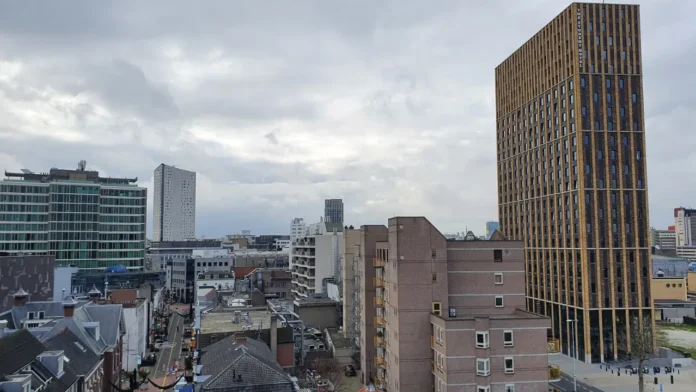The Eindhoven region is an economic engine. The city is growing fast. And this is being felt, in many areas. There is a shortage of housing, personnel and power. “We already can’t handle the demand at the moment”.
At least 50,000 and possibly as many as 70,000 jobs are expected to be added in the region in the next 10 years because of the rapid growth of the many hundreds of technology companies. So for the region, it will be a huge task to accommodate all those people, mostly from abroad. “We’re not going to be able to manage it all. Those people need housing, doctors and playgrounds. All the amenities they need. Ultimately, the goal is for all those people to have a nice, pleasant life,” Paul van Nunen, of Brainport Development, explains.
Growing pains
So to get that done, there is still much work to be done. There are already challenges, such as a shortage of manual workers due to an ageing population and the shortage of housing in the Netherlands. On top of that comes the region’s growing pains. Meanwhile, things are already squeaking and creaking in Eindhoven, in many areas. Whether it’s the shortages on the power grid, the housing shortage or the lack of professionals in education or healthcare. “We can’t handle the demand at the moment”, Peter Lemmens, of grid operator Enexis, and Wim Klaassen, of school board SALTO, say.
Grip
Eindhoven politicians are concerned and want a better grip on growth. “The quality of life will come under pressure. We have to watch out for that. If the economy is growing, and everything else is getting squeezed, such as housing and the growing gap between rich and poor, then you have to take a break”, Virginia Jonkers, of the Partij voor de Dieren (party for the animals), says. “If those amenities are missing, then you may have to put the brakes on”, Piet der Kinderen of 50Plus adds.
GroenLinks (green left party) and Volt also join. “The preconditions have to be in order. Are there enough teachers, nurses and student accomodations? If it appears that things are out of balance, we must be able to put our foot on the brake as a city. For example, in attracting technical talent to our city”, Eva de Bruijn of GroenLinks says.
No on and off button
Alderman Stijn Steenbakkers promised to come up with a plan of action to get a better grip on growth. This could be done, for example, by no longer granting permits to certain companies, such as logistics centres. Still, the Alderman also tempers expectations. “As a municipality, we cannot press an on and off button”. Furthermore, Steenbakkers appeals to local politicians. “We must also be critical of ourselves. If there are proposals for a lot of additional housing, it does help to speed up on that together, and not lay down requirements down to the last detail”.
Source: Studio040
Translated by: Bob











